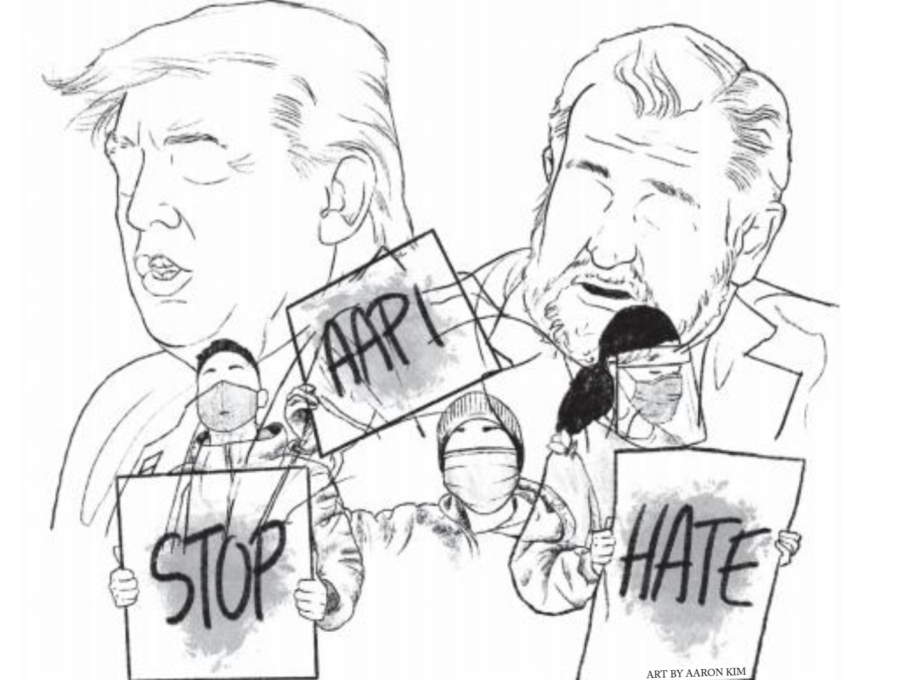In the wake of a torrent of violence and racist hate speech towards Asian Americans, those in the public eye have been increasingly pressured to address and advocate against sources of bigotry.
Most public officials and politicians have approached the issue, some more aggressively than others.
Former President Trump, for example, deserves credit only for adding fuel to the fire and of enabling racism and xenophobia already present in the U.S. He exacerbated tensions with inflammatory speech and cruel nicknames, such as labeling COVID-19 as the Kung Flu and the China Virus.
Perhaps worst of all, Trump created an atmosphere of acceptance for violent anger expression. By condoning cruelty and brutality, Trump incited extremist groups of Americans to commit atrocious crimes of racism and hate.
But while Trump fostered this atmosphere of acceptance, he by no means deserves the majority of the credit for the rise in anti-Asian hate. No, America’s history of mistreating Asian Americans earns that. But lawmakers actively attempting to block reform bills are perpetuating America’s shameful past.
Senator Ted Cruz is one of those legislators. The junior senator was among six Republicans opposing the COVID-19 Hate Crimes Act introduced in March by U.S. Senator Mazie Hirono of Hawaii and U.S. Representative Grace Meng of New York.
The bill requires the Department of Justice to review reports of COVID-19 hate crimes, defined as violent crimes motivated by two things: the race of any person, actual or perceived, and the actual or perceived relationship to the spread of COVID-19 of any person because of race. Since its introduction, the bill has passed through the Senate but is waiting for approval in the House of Representatives.
While the number of politicians addressing the horrors the Asian American community faces is small, many are rallying in an attempt to help and heal. In April, the White House outlined a comprehensive plan of action including federal, state and local law enforcement training on handling hate crimes, allotting $49.5 million to fund community-based services for AAPI survivors of sexual and domestic violence and establishing a committee within the COVID-19 Equity Task Force to address xenophobia.
And while the Stop AAPI Hate organization and the Asian Pacific American Institute for Congressional Studies commended the new administration’s progress, unrest has trickled through the Asian American community. American law enforcement’s mistreatment of the Asian American community has caused many to be more afraid of police than hate crimes, according to the same AAPI advocates.
This distrust stems from the centuries of public violence and government-sanctioned discrimination that line everything in Asian American history in the United States. But even as recently as the 21st century, Asian Americans have not been protected, and have often been scapegoated during public health and economic crises.
During the 2003 SARS outbreak, for example, Asian Americans were blamed and became targets of hate. The tense and fearful climate in the country became a hostile racial climate, much like the present day. The stigmatization of Asian Americans began.
Or rather, surged. Looking back as far as 1850, the stigmatization of Asians began with the ‘Yellow Peril’ fears as threats to the white social order. And then when Chinese immigrants flocked to America in the 1880s and labored to create essential infrastructure for the country, they were banned with the Chinese Exclusion Act, among others.
In the 1930s and 1940s, aggression towards Asian Americans and Pacific Islanders was at another high as Americans took out their pent-up anger from the war with Japan in the Pacific Islands.
This pattern of scapegoating all Asian Americans during times of hardship in America is glaringly clear. And it is up to everyone to recognize the trend and support those who can make permanent changes to prevent any more bigoted violence.

